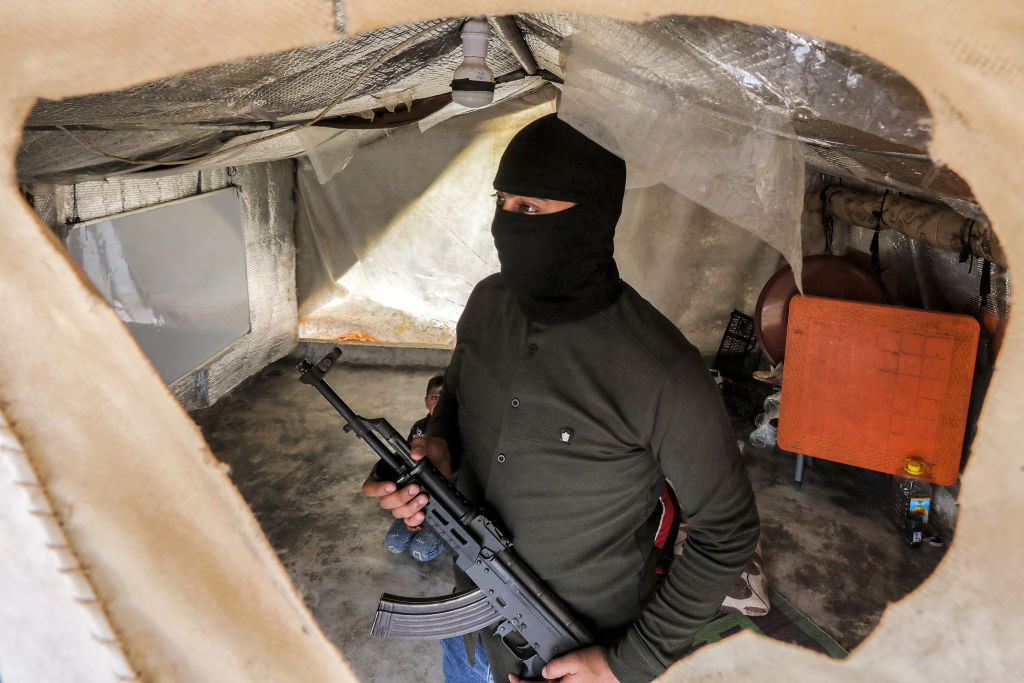ADF STAFF
Rampant terrorism has destabilized the Sahel for years and played a role in military coups in Burkina Faso, Mali and Niger. Despite their promises of security, the juntas have largely failed to stop terror attacks.
Hundreds of Russian mercenaries are in the region and have been accused of widespread human rights abuses. Now another contingent of mercenaries has entered the fray, facilitated by a Turkish private military company called Sadat.
“All three countries rely on Turkish drones and have close personal contacts in the Turkish defense industry,” analyst Liam Karr, of the Institute for the Study of War, wrote in his July 11 briefing.
“Turkish-funded Syrian mercenaries also began operating in at least Niger and potentially Burkina Faso in 2024 to protect crucial economic sites where the Turkish government has a shared stake, such as mines.”
The Syrian Observatory for Human Rights (SOHR), a watchdog organization that monitors the conflict in Syria, claimed in May that Sadat had deployed 1,100 Turkish-trained Syrian mercenaries to Burkina Faso and Niger since September 2023.
Sadat also reportedly has trained members of the new private security force that protects Malian junta leader Col. Assimi Goïta.
The Sahel deployment is not the first time Sadat has sent mercenaries to Africa.
In early 2020, Sadat reportedly sent 5,000 Syrian mercenaries to ward off an assault by Field Marshal Khalifa Haftar, who is supported by Russian Wagner Group mercenaries.
According to the BBC, Turkey previously has acknowledged that Syrian fighters were present in Libya but did not admit to recruiting them.
With its entrance to the Sahel, Sadat appears to be competing against Russia for business again, with some even referring to Sadat as the “Turkish Wagner.”
Experts say that like Wagner’s previous ties to Russia, Sadat essentially is a tool of the Turkish military. It might not directly employ its own mercenaries, but it recruits, trains and supports Syrian mercenaries.
“Comparisons to the Russian mercenary group Wagner highlight the growing attention and criticism directed towards [Sadat],” Grey Dynamics analyst Jawhar Farhat wrote on June 3. “Additionally, accusations of deploying fighters to conflict zones like Niger and West Africa … underscore the increasing international focus on Sadat’s operations.”
Sadat has denied recruiting or deploying Syrian mercenaries to Libya or Niger, telling the BBC it provided “consultancy, training and logistics services to armed forces and security forces in the field of defense and security according to the Turkish Commercial Code.”
The BBC reported on July 15 that some of Sadat’s Syrian fighters in Niger have ended up under Russian command fighting violent extremist organizations affiliated with al-Qaida and the Islamic State group in the Liptako-Gourma region, the tri-border area between Burkina Faso, Mali and Niger.
Two Syrian men using pseudonyms who previously fought as Turkish-backed rebels against Syrian government forces, told the BBC that they were conflicted by the prospect of working with the Russian Ministry of Defense, which has supported Syria’s authoritarian president.
“I hate these [Russian] forces,” one said, “but I have to go for economic reasons.”

